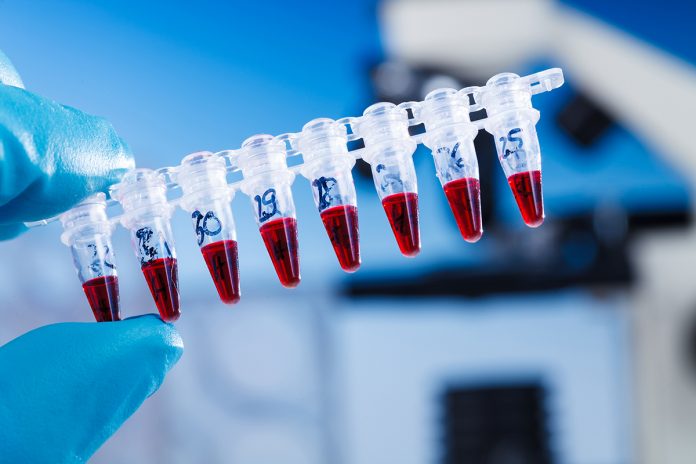Mark Daly, Director of the Institute for Molecular Medicine Finland (FIMM), HiLIFE at the University of Helsinki, shares his expertise on medical genetic research on a population scale in Finland
Long before the completion of the Human Genome Project, the promise that genetic research would uncover critical insights about the origins of disease that could lead to new and more effective therapies has been within sight, but not within reach. Very promising examples of targeted therapeutics against specific cancers and novel lipid-lowering medications have emerged but the road from genome to disease insight to therapy has been more challenging than some had hoped.
Medical data protection
It has become clear that many key medical insights require the integration of an enormous scale of genetic and medical information from 100,000s to 1,000,000s of humans in order to be discovered – yet in most parts of the world, the collection, aggregation and integration of such information has been precluded by many logistical and regulatory hurdles. Inherent to the problem is the challenge in striking the right balance between individual data protection and autonomy and the scientific progress that is possible only when data from many individuals is assembled and studied.
An individual’s medical data is clearly one of the most private elements of personal data and must always be given the highest level of data protection and to be in the control of the individual. This is, of course, a primary goal of the GDPR, as well as regulatory frameworks in other parts of the world.
Research medicine challenges
At the same time, as medical and genome sciences have advanced (and we have learned the value of their integration), providing access to these data on a large-scale to promote research discovery is seen as an opposing pressure. Indeed, critical insights relevant to both individual diagnoses and therapies in rare diseases and cancers, as well as the discovery of therapeutically actionable biology in common disease are now possible but often require genomes and health data from extremely large samples to be analysed together. How to ethically balance data protection and promote essential medical discoveries and innovation is, therefore, one of the major challenges in research medicine today.
Finland tackled this challenge proactively and efficiently with an innovative national Biobank Act in 2013. While completely protecting individual data (consistent with the later GDPR requirements), the Biobank Act facilitates responsible and approved medical research in academia or industry with several critical elements. First, is the introduction of the concept that individuals may provide a ‘broad consent’ for approved medical research (and, therefore, need not consent to each separate approved research project individually).
Second, a straightforward way in which previously collected samples (such as valuable epidemiological collections with extensive characterisation and longitudinal follow-up) can be transferred to the national biobank framework and used in future studies. Third, individuals consenting to join the biobank can be recontacted (based on their medical and genome data results) in the context of an approved research study, creating the opportunity to build a dynamic research resource that can be updated with not only national health registry data but individuals are invited to participate in secondary research studies.
The FinnGen project
Equally important are provisions that individuals may remove consent at any time and request any data generated on their samples or data. Such a forward-looking framework has resulted in the initiation of large-scale and innovative research projects, such as FinnGen.
The FinnGen project aims to collect genome data and integrate it with national health registry information on 500,000 Finns (almost 10% of the population). FinnGen is supported by a unique public-private partnership involving the Finnish government innovation fund Business Finland and a consortium of nine pharmaceutical companies. Made possible by the progressive Biobank Act, the study has a focus on generating therapeutically relevant insights surrounding the root causes of common diseases, as well as their progression and responses to therapy. The project will, therefore, utilise both deeply studied legacy collections, the subjects of which in many cases are quite old and newly recruited patients from hospital clinics throughout Finland (more than 150,000 individuals in less than two years).
With all individuals recruited into the Finnish biobanks, the project is then approved to perform a broad set of analyses including (from the approved study plan) the “identification of deleterious predisposing and protective disease variants, the development and genetic exploration of novel longitudinal disease progression and response phenotypes and the use of genetic information for prioritising potential drug targets”.
That such analysis can be done in an ethically responsible way, with no individually identifiable data in the hands of research staff outside the approved government agencies which handle such data, is a credit to the innovative spirit in Finland and, in particular, the commitment of a population who see the benefit of an advanced medical system comes with a responsibility to permit their data to be used in further critical medical research.
While Finland is making progress, we must distribute lessons learned and technology platforms to ensure global progress. Mechanisms for sharing personal data appropriately and anonymously across national boundaries, not just within, must be developed since human biology and medical challenges are shared by all and efforts, resources and samples in any one country are insufficient to solve the most complex medical problems. Moreover, since medical (and particularly genomic) research has been very disproportionately centred on people of European ancestry, it is ethically imperative that locally appropriate and secure genetic data sharing techniques be adopted widely in Asia and Africa, as well as Europe and North America.
Furthermore, we must accomplish this in a way that respects cultural differences and recognises the importance of capacity and infrastructure building in under-resourced locations. Only then will we ensure maximum value is achieved from existing, as well as newly developed medical research efforts around the world. In this way, we may finally deliver on the promise of the Human Genome Project, ensuring that the fruits of medical genetics research can inform on the biology of disease in all people and lead to a new era of improved therapeutics for all.
Mark Daly
Director
Institute for Molecular Medicine Finland (FIMM), HiLIFE, University of Helsinki
Tel: +358 50 546 8790
*Please note: This is a commercial profile











